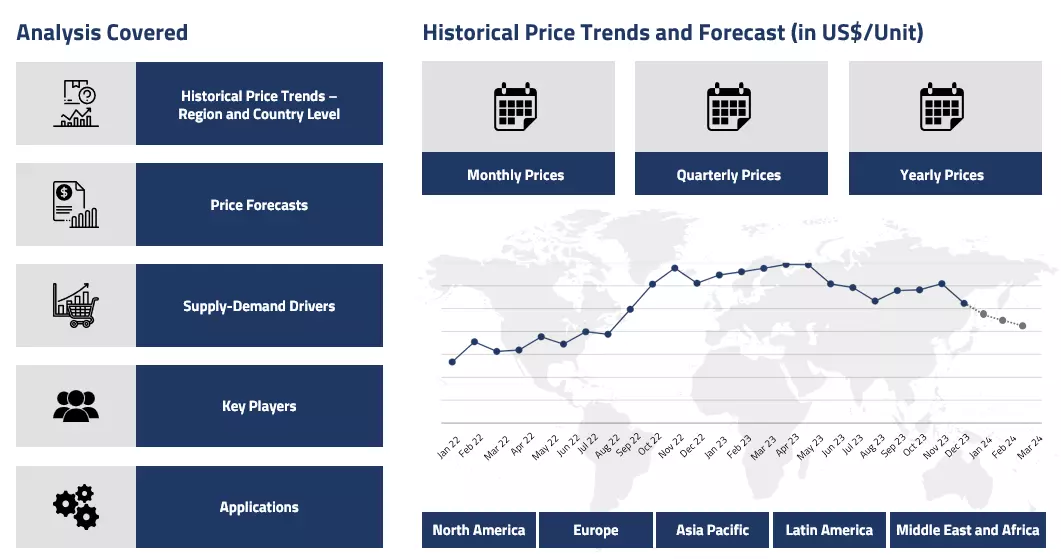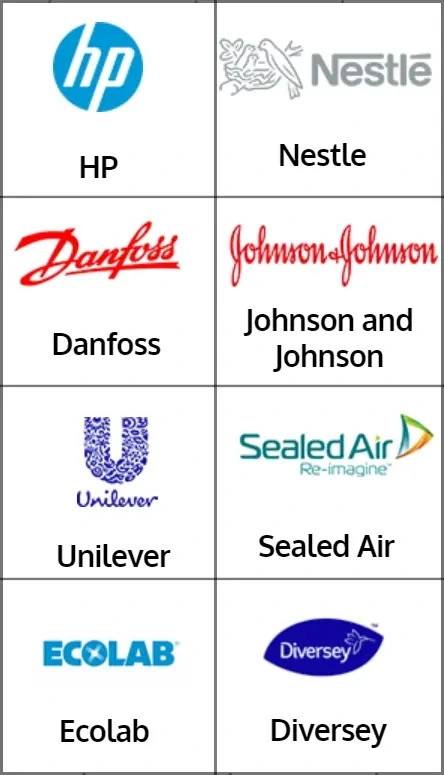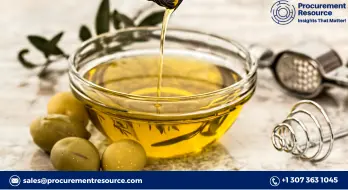Product
Olive Oil Price Trend and Forecast
Olive Oil Price Trend and Forecast
Olive Oil Regional Price Overview
Get the latest insights on price movement and trend analysis of Olive Oil in different regions across the world (Asia, Europe, North America, Latin America, and the Middle East & Africa).
Olive Oil Price Trend for Q1 of 2024
Europe
Olive oil prices observed a mixed trajectory during the first half of the year 2024. Olive oil started the year on an elevated note. After the persistent surges in the latter half of the previous year, the olive oil prices had reached record highs by January’24. And as time progressed the olive oil markets further built upon this upheaval. In European households’ olive oil is a regular part of the staple diet; however, the Spanish household, for the first time, bought more sunflower oil than olive oil because of its high prices. In some European markets, olive oil prices have shown more than 60% year-on-year incline. These surges in the prices have severely impacted the general olive oil consumption considerably.
Olive Oil Price Chart

Please Login or Subscribe to Access the Olive Oil Price Chart Data
The olive oil market showed some very minimal buoyancy in late May and June. There are several factors behind the upsurge in olive oil prices. Harsh climatic conditions, including increased temperatures and erratic weather patterns, have severely impacted olive oil production. The susceptibility of olive crops to these changes has led to reduced yields. Along with that, the elevated interest rates have also added financial strain on the olive oil industry, contributing to higher production costs and, subsequently, higher prices.
North America
The American olive oil market no was different than the European market as the prices were found to be surging here. A global dip in yield has constrained olive oil supplies all over the world. With this shortage of available supplies, the prices for existing stocks also shot up. Inflationary pressures have also contributed to the rising costs of olive oil, affecting both production and retail prices. Despite the rising prices, demand for olive oil remains strong, leading to a scenario where demand outstrips supply, further elevating prices.
Analyst Insight
According to Procurement Resource, with the current harvest volumes and stock volumes, the Olive Oil market will take some sometime to normalize.
Olive Oil Price Trend for the Second Half of 2023
Europe
Heavy droughts, heat waves, and an increase in the number of wildfires in European countries significantly reduced the harvest of olives in the third and fourth quarters of 2023. This reduction was well evident in the striking rise in the pricing trajectory of olive oil during the aforementioned period.
The agricultural output of Spain in 2023/24 declined by almost a third as compared to previous years, straining the supply chains and raising the price quotations of olive oil throughout the third and fourth quarters of 2023. The changes in the price trajectory were not only limited to the European countries but were also visible in the pricing movements of the North American and Asian olive oil markets.
North America
The ripple effects of drought season in Spain and the significant decline in the production of olives around the globe were well evident in the pricing trajectory of olive oil in North America, too. The price trajectory inclined by several folds throughout the H2 of 2023 as the consumers started acquiring the commodity in bulk, speeding up the drying process of inventories and pressurizing the supply chains.
Analyst Insight
According to Procurement Resource, the price trend of Olive Oil is expected to soar higher in the upcoming months as the downstream demand is rising exponentially while the production rates are far from balancing the supply-demand equilibria.
Olive Oil Price Trend for the First Half of 2023
Europe
In the first two quarters of 2023, prolonged dry weather in southern Europe damaged crops in Spain, Italy, and Portugal. As a result, prices skyrocketed, and the traders' concerns regarding the unchecked incline in the pricing trajectory intensified. The price increase was further caused by several other factors, including rising farming costs due to inflation and energy difficulties.
The government outlook and their trade policies worked in contrast to the consumer benefits, but heatwaves and water shortages in many parts of the European countries continued to trouble the agriculture community. Because of its importance to Spain's economy, olive oil has become a hot topic, with extensive coverage on where to obtain reasonably priced bottles. Further, concern over how climate change may affect food costs and inflation spread around the world.
North America
Spain is the world’s largest exporter of olive oil, and the production crisis in the region had a severe impact on the pricing trajectory of olive oil in North America, too. Not only Spain but the majority of the global producers struggled with intense drought and lack of rainfall, which lowered the global production of olives by a significant margin, raising its price quotations significantly. Many areas reported a hike in their revenues by almost 50% amid the production crisis and heightened demand for the commodity.
Analyst Insight
According to Procurement Resource, the price trend of Olive Oil is expected to face northwards in the upcoming quarters as the domestic producers are still battling with adverse weather patterns and limited support from the government authorities.
Olive Oil Price Trend for the Second Half of 2022
Europe
As the Russian war kept getting more and more dire and stretched beyond anticipation, the trade routes in the European region became more and more hurdled. Europe is the biggest producer, consumer, and exporter of olive oil. However, this war situation made it difficult for the supplies to move, and thus, a dramatic surge in both domestic and international olive oil prices was seen during this time.
North America
Following the erratic price trend in the European market, olive oil prices skyrocketed in the American markets as well. The domestic monthly average prices in America went from about 4227 USD/MT in July’22 to around 6024 USD/MT in December’22. The freight disturbances caused by Russia and Ukraine’s war were primarily responsible for this disbalance in the olive oil market.
Energy prices soared as the West imposed sanctions on Russia. This pushed up the general upstream costs for commodities as the global markets underwent inflation. Overall, a steeply inclined price graph was observed during the said period.
Analyst Insight
According to Procurement Resource, given the current crisis in the olive oil market, the prices are expected to surge even more in the coming times.
Olive Oil Price Trend For the Second Quarter of 2022
Europe
The second quarter of the year 2022 witnessed confined fluctuations in the olive oil price trend. Russian attack in Ukraine had created the biggest trade hurdle for the region. However, the classic olive oil consumption of European consumers still drove the market. The European countries of Spain and Italy are one of the biggest producers and exporters of olive oil. Since the harvest season was still far, the suppliers were relying on the existing stocks in inventories. So, because of high inventory levels, the prices wavered along limited numbers.
North America
In the American olive oil market, a similar wavering price trajectory was witnessed during the second quarter of the year 2022. The average monthly prices went from about 4455 USD/MT in April’22 to about 4191 USD/MT in June’22. This slight dip in the price trend showed the supplier’s confidence, a steady demand in the summer months, and the overstocked levels of inventories. Overall, a very average market performance was experienced in America during Q2’22.
Analyst Insight
According to Procurement Resource, given the ongoing war between Russia and Ukraine, Olive Oil prices are expected to surge going forward in the coming months.
Olive Oil Price Trend For the First Quarter of 2022
Europe
Russia's war in Ukraine is having an impact on global prices and inflation. The supply shortage is affecting European supermarkets as well and Spain is no exception. As a result of the decrease in sunflower oil imports from Ukraine, Spaniards are gravitating toward olive oil.
Sunflower oil from Ukraine accounts for almost 40% of Spain's total imports, or 400,000 tonnes. Because of the strong demand for alternative olive oil, the price of the commodity has risen throughout the country. Spain produces more of the commodity than it uses, and a third of its virgin and refined oil production is exported.
Olive oil prices have held constant for the previous seven months, but drought in southern Spain and increased production costs have raised concerns about the long-term trend. The average price of a litre of extra virgin olive oil in the second week of January was 3.30 EUR, while that of virgin grade was 3.10 EUR and that of lampante was 2.90 EUR.
Olive Oil Price Trend For the Fourth Quarter of 2021
Asia
Even if imported olive oil is more expensive than domestic oil, for example, the idea that pricing was a significant barrier in the Chinese market is no longer true. Recognizing the benefits, people are ready to spend a few more yuans on higher quality items rather than on cheaper indigenous oil.
The health and virtue advantages of the commodity are a major reason for its appeal among Chinese consumers. Indeed, it is high in vitamin E and has no preservatives due to its natural origins. Additionally, it is used to reduce the risk of coronary disease, cancer, and inflammation, as well as to prevent cardiovascular disease and high cholesterol.
Europe
Extra virgin olive oil prices in the Spanish market declined slightly from 425 EUR/100Kg to 400 EUR/100Kg. Demand from non-European nations was increasing, resulting in a predicted rise of 860k MT in 2021 to 949k MT in 2025 in total EU olive oil exports to countries outside the union. Olive oil prices in Italy and Greece remained constant throughout the quarter at a value of 300 EUR/100Kg.
Olive Oil Price Trend For First, Second and Third Quarters of 2021
Asia
Olive oil imported from Spain was priced between 70 and 200 RMB/L in China. Its average price was 98 RMB/L (USD 16.1), which was much more than the average price of the remaining cooking oils.
Europe
Exports climbed by 3% from October 2020 to June 2021, compared to the same period the previous year. Exports to the United States increased by 4%, which was lower than projected, with trade volumes slowing in the final three months.
Extra virgin olive oil prices in Italy remained constant for the first two quarters (450 EUR/100Kg) post which it slowly declined for the next two quarters reaching a value close to 400 EUR/100Kg by August end whereas the prices in Spain and Greece increased the January value of 250 EUR/100Kg to 300 and 320 EUR/100Kg respectively by the end of second quarter.
Latin America
Brazil is South America's largest importer. Around 87,900 MT of olive oil and 117,330 MT of table olives are imported. Argentina (54%), Egypt (27%), and Peru are its top suppliers of table olives (10%). In terms of oil, 88% comes from Portugal, Spain, Italy, and Greece, with the remaining 12% coming from Argentina and Chile.
Chile, South America's second-largest producer, produced 25,500 MT of olive oil, a 13% increase over 2020. Because of increased olive plantation, production in Chile may continue to rise. The country currently has approximately 22,152 hectares of olive groves.
Olive Oil Price Trend For the Year 2020
Asia
With the high demand for the commodity across the Asia Pacific region, especially in high population countries like China and India, continuous growth in olive oil prices was observed during the third quarter of 2020, followed by a fall in prices in these regions.
It was estimated that the consumption of the commodity in China in the 2020/21 crop year would reach 66,000 tons, up from 57,500 MT in 2018/19. Of that amount, China purchased 58,500 MT and produced 7,500 MT
While the price of culinary oils such as peanut, soybean, or rapeseed oil fluctuates between 10 and 20 RMB/L (or $1,5 and $3), the price of olive oil is around tenfold that, ranging from 100 to 200 RMB/L (or $16 to $32).
Europe
Spain is the world's biggest producer, exporter, and consumer of this product. It accounts for about half of global output; other notable producers include Italy, Greece, and Portugal. This is due to olive growing, which is one of the most important industries in these nations due to the Mediterranean diet.
Greece, Spain, Italy, and Portugal are the principal producers and exporters in the region. Italy dominates the industry in terms of imports. Olive oil prices in Spanish market were close to 250 EUR/100Kg which remained constant for the rest of the year with a slight increase of 75 EUR/100Kg in December.
In Italy, extra virgin olive oil prices were 400 EUR/100Kg during October which increased to 450 EUR/100Kg by the end of the year.
North America
Domestic usage of the commodity in the United States was around 386,000 MT in 2020, representing a 178,000 MT growth over the previous two decades. An overall upward trend in its use was noticed, with some seasonal swings. The general price in the region increased with minor changes in August.
In 2020, olive oil sales surged. Overall, the category increased by more than 25%, and household penetration increased by the most in a decade (up to 43%). Although the high price of olive oil in comparison to rival cooking oils has historically been the primary impediment to boosting olive oil use in the United States, many customers overcome their price sensitivity in 2020. This was due to a shift in how many customers saw the value-to-price ratio.
Latin America
Peru leads the way in olive production, accounting for 189k MT in 2018. This was followed by Argentina, which accounted for 175k MT in 2018, thereby accounting for the second largest proportion of South American production. Chile is the third largest shareholder. In 2020, the average virgin olive oil import price was 4,017 USD/MT, down 11.5% from the previous year.
Procurement Resource provides latest prices of Olive Oil. Each price database is tied to a user-friendly graphing tool dating back to 2014, which provides a range of functionalities: configuration of price series over user defined time period; comparison of product movements across countries; customisation of price currencies and unit; extraction of price data as excel files to be used offline.
About Olive Oil
Olive Oil is a liquid fat obtained from olives. With the melting point -6°C, boiling point 700°C and smoke point 190-215°C, 175°C, and 210°C for extra virgin, virgin, and refined olive oil, respectively, it is the most common vegetable oil.
People who consume an olive oil rich diet appear to have a higher life expectancy along with lower chances of dying from cardiovascular disease. Fresh olive oil has a pungent, fruity smell, while rancid olive oil has little smell or may smell like crayons or stale peanuts. It has a bitter taste with no fruitiness.
Olive Oil Product Details
| Report Features | Details |
| Product Name | Olive Oil |
| Synonyms | 8001-25-0, Olea europaea l. fruit oil |
| Industrial Uses | Cooking, Frying food , Cosmetics, Pharmaceuticals, Soaps, Traditional oil lamps, Skin care |
| Supplier Database | Sovena Group, Mosselman S.A, Cargill, Incorporated, Archer Daniels Midland Company (Oilio®) |
| Region/Countries Covered | Asia Pacific: China, India, Indonesia, Pakistan, Bangladesh, Japan, Philippines, Vietnam, Iran, Thailand, South Korea, Iraq, Saudi Arabia, Malaysia, Nepal, Taiwan, Sri Lanka, UAE, Israel, Hongkong, Singapore, Oman, Kuwait, Qatar, Australia, and New Zealand Europe: Germany, France, United Kingdom, Italy, Spain, Russia, Turkey, Netherlands, Poland, Sweden, Belgium, Austria, Ireland Switzerland, Norway, Denmark, Romania, Finland, Czech Republic, Portugal and Greece North America: United States and Canada Latin America: Brazil, Mexico, Argentina, Columbia, Chile, Ecuador, and Peru Africa: South Africa, Nigeria, Egypt, Algeria, Morocco |
| Currency | US$ (Data can also be provided in local currency) |
| Supplier Database Availability | Yes |
| Customization Scope | The report can be customized as per the requirements of the customer |
| Post-Sale Analyst Support | 360-degree analyst support after report delivery |
Note: Our supplier search experts can assist your procurement teams in compiling and validating a list of suppliers indicating they have products, services, and capabilities that meet your company's needs.
Olive Oil Production Processes
- Production of Olive Oil via Extraction Process
Olive Oil is produced through the extraction of oil present in olive drupes. The oil is produced in the mesocarp cells, and stored in a specific kind of vacuole called a lipo vacuole. The extraction process involves separation of oil from other fruit contents, that is, vegetative extract liquid and solid material. This separation can be attained by physical means alone, that is, oil and water do not mix.
Methodology
The displayed pricing data is derived through weighted average purchase price, including contract and spot transactions at the specified locations unless otherwise stated. The information provided comes from the compilation and processing of commercial data officially reported for each nation (i.e. government agencies, external trade bodies, and industry publications).
Assistance from Experts
Procurement Resource is a one-stop solution for businesses aiming at the best industry insights and market evaluation in the arena of procurement. Our team of market leaders covers all the facets of procurement strategies with its holistic industry reports, extensive production cost and pre-feasibility insights, and price trends dynamics impacting the cost trajectories of the plethora of products encompassing various industries. With the best analysis of the market trends and comprehensive consulting in light of the best strategic footstep, Procurement Resource got all that it takes.
Client's Satisfaction
Procurement Resource has made a mark for itself in terms of its rigorous assistance to its clientele. Our experienced panel of experts leave no stone unturned in ensuring the expertise at every step of our clients' strategic procurement journey. Our prompt assistance, prudential analysis, and pragmatic tactics considering the best procurement move for industries are all that sets us apart. We at Procurement Resource value our clients, which our clients vouch for.
Assured Quality
Expertise, judiciousness, and expedience are the crucial aspects of our modus operandi at Procurement Resource. Quality is non-negotiable, and we don't compromise on that. Our best-in-class solutions, elaborative consulting substantiated by exhaustive evaluation, and fool-proof reports have led us to come this far, making us the ‘numero uno' in the domain of procurement. Be it exclusive qualitative research or assiduous quantitative research methodologies, our high quality of work is what our clients swear by.
Related News
Table Of Contents
Our Clients

Get in Touch With Us

UNITED STATES
Phone:+1 307 363 1045

INDIA
Phone: +91 1203185500

UNITED KINGDOM
Phone: +44 7537 171117
Email: sales@procurementresource.com


